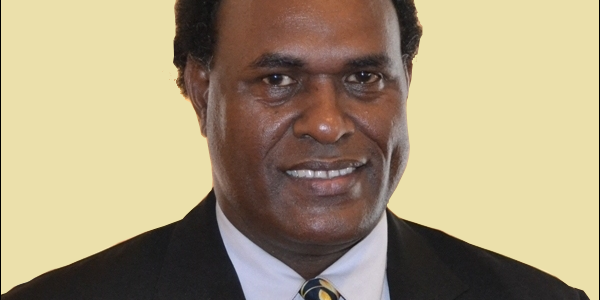THE Solomon Star article of 21 April, said to be reporting the remarks of Member of Parliament for West Are’Are, Hon. John Maneniaru, regarding the Bina Harbour Tuna Processing Plant Project, needs to be challenged.
The article paints a misleading picture of the prioritisation and resourcing of the project, which the Ministry of Fisheries & Marine Resources is mandated by the Government to deliver as a national priority project.
While the Ministry’s development budget allocation for the Bina Harbour project is relatively modest, in keeping with the limited resources that all Government agencies must live with in these difficult times, the true story of resources committed to the project is remarkably different.
Thanks to the long-standing commitments of development partners, particularly New Zealand, Australia, and the International Finance Corporation (IFC) of the World Bank Group, the project is receiving and will go on to receive unprecedented technical and financial support.
These commitments demonstrate our development partners’ recognition that the Bina Harbour Tuna Processing Plant Project is not only of key national importance, but well on track to achieving its ultimate aims.
As the Hon. Maneniaru will know, all projects that require mobilisation of land through effective, sustainable community engagement to ensure rights holders are well informed and that their interests safeguarded, is a painstaking process that cannot be hurried. Bina Harbour land mobilisation is now near concluded after several delays arising from last year’s unrest, and then COVID 19 restrictions.
Major progress with the Bina Harbour project is set for 2022 – New Zealand is presently engaging a contractor to manage the Bina Harbour Project office, in premises newly-fitted out by MFMR. New Zealand will find staffing and operation of the office over 5 years at a cost of around NZD 12.5 m. The office is expected to be fully operational by August this year, taking on the responsibilities of the present Bina Harbour team, which has also been supported by New Zealand.
At the same time New Zealand will fund a MFMR unit dedicated to safeguarding the interests of Bina area communities who hold the legal/ kastom rights holders to the land, water source and harbour access required for the project. New Zealand’s commitment to this is budgeted at NZD 2.3 m.
The International Finance Corporation has financed detailed preliminary studies of the commercial and resource-based feasibility of the project and the scoping of the infrastructure required to attract an investor to construct and operate a tuna processing plant at Bina, at a cost of around USD 200,00.
IFC’s confidence in the project is recently demonstrated by the signing of an ongoing advisory service agreement with MFMR, under which IFC will fund four major pieces of technical, legal, environmental, and socio-economic studies during 2022 that are crucial to advancing the project. IFC is also supporting MFMR’s engagement with potential investors, bring its global knowledge and experience to the commercial arrangements that will be agreed with an investor to ensure Solomon Islands’ interests are best served. The value of these services is estimated at USD450,000.
Australia has shown great interest in the Bina Harbour project and indications are that Australia will seriously consider supporting the financing of the seaport at Bina, which will cost an estimated USD140 million.
This is consistent with Australia’s broader commitment to supporting our national infrastructure development through the National Transport Core Initiative and the Solomon Islands Infrastructure Program (SIIP).
SIIP has recently approved financing of a technical study to scope the water supply and wastewater management needs for the tuna processing plant and an emerging Bina Township. Solomon Water will oversee this work, which will cost around AUD 500,000.
Under the MOU between MFMR and the Malaita Provincial Government the project has established close consultation and collaboration with MPG officials and benefits from their crucial in-kind contributions and guidance.
USAID is also expressing interest in supporting the Bina Harbour project, potentially through its present activities in Malaita on water catchment management. The US Trade & Development Agency has also expressed interest in the project, with the potential that it could support any US firm that invests at Bina.
So, while the Bina Harbour project faces many challenges, is it now well placed to finally realise the long-held national ambition to bring real economic development to Malaita and to benefit our national well-being.
– MFMR Media









